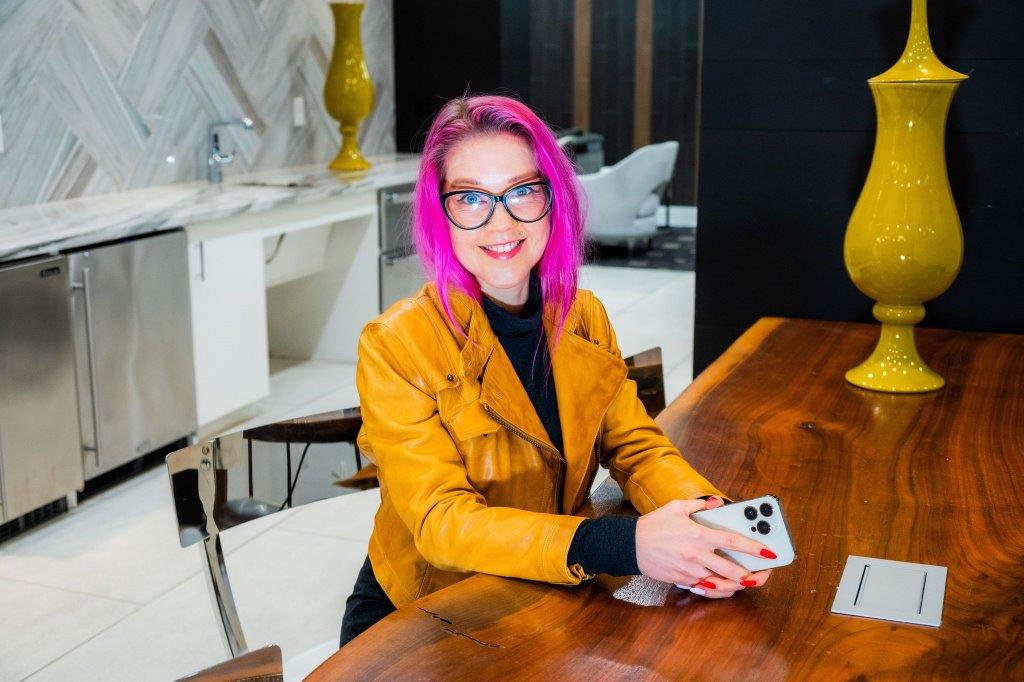
Leaving the Tech sector. Why People Matter More than Technology.
Hi everyone! My name is Anna Naumova. I am a career coach and consultant. I completed my studies in crisis psychology and am currently pursuing international certification with the International Coaching Federation (ICF). In August, I will begin a program for specialists in eating disorders (ED). Professionally, I am a Principal Product Manager with over 15 years of experience in tech, having worked at companies like Apple. I started my career in 2006 and was part of the early days of the social network Ok.ru that was acquired by VK Group (Vk.com). Ever heard of it? I was born in Moscow, and in 2016, I moved to the USA through the Green Card lottery. I lived in New York, Boston, and Silicon Valley before moving to Austin, where I’ve lived for over five years. I’m also a long-distance runner, having completed 5 marathons, and I’m qualified to run the Boston Marathon in 2025.
In 2019, I decided to help people find jobs at American companies and started my career consulting activities. Two years ago, I launched my YouTube channel and my own business. Over these two years, I have helped hundreds of people receive job offers and get hired. What started as a hobby gradually became my main occupation. Now, I want to transition from my tech career as a product manager and dedicate my life to what I love—helping people with their career development. I especially want to help immigrants from all across the world. I went through a lot of pain and difficulties when I moved to the USA.
I work at the intersection of practical things, like resume creation, LinkedIn profile development, interview preparation, and offer negotiations, and psychology. I guide individuals in discovering their authentic professional paths, whether in corporate careers or entrepreneurial ventures, I help people to overcome fears, shyness in asking for higher salary and better benefits, self-doubt, impostor syndrome, procrastination, and any other psychological barriers related to career development. For example, a client might not believe they can get a job at Google or Apple or that they can earn $200,000 a year or more, or they might be completely lost and not know what to do next.
Why do I want to leave the Tech industry? A few years ago, I began exploring myself—my strengths and weaknesses, my values, what I really want in this world, what I love, and what I strive for. I started to discover who I am, and I realized something very important: I love people much more than technology. People are an endless universe, and our brains are the most advanced machines. Each person is unique. I don’t believe that artificial intelligence will fully replace humans, especially in areas where empathy, intuition, critical thinking, and the ability to solve unconventional problems are crucial.
The second reason I don’t want to work for corporations is that I love freedom and solitude. It’s very important for me not to be tied to a specific place or person. Only when I can take my backpack with my laptop and spontaneously move from point A to point B without explaining anything to anyone do I feel good. This kind of work is only possible when you build your own business and work for yourself.
And finally, responsibility. I am responsible for every person who comes to me for help. I pour all my love and soul into these people, and this sense of control gives me stability and confidence in the future. Even though this is a business, and clients are here today and gone tomorrow, it still feels more stable to me than working for a company over which I have no full control. If I don’t have clients today, it’s entirely my responsibility that I didn’t find them.
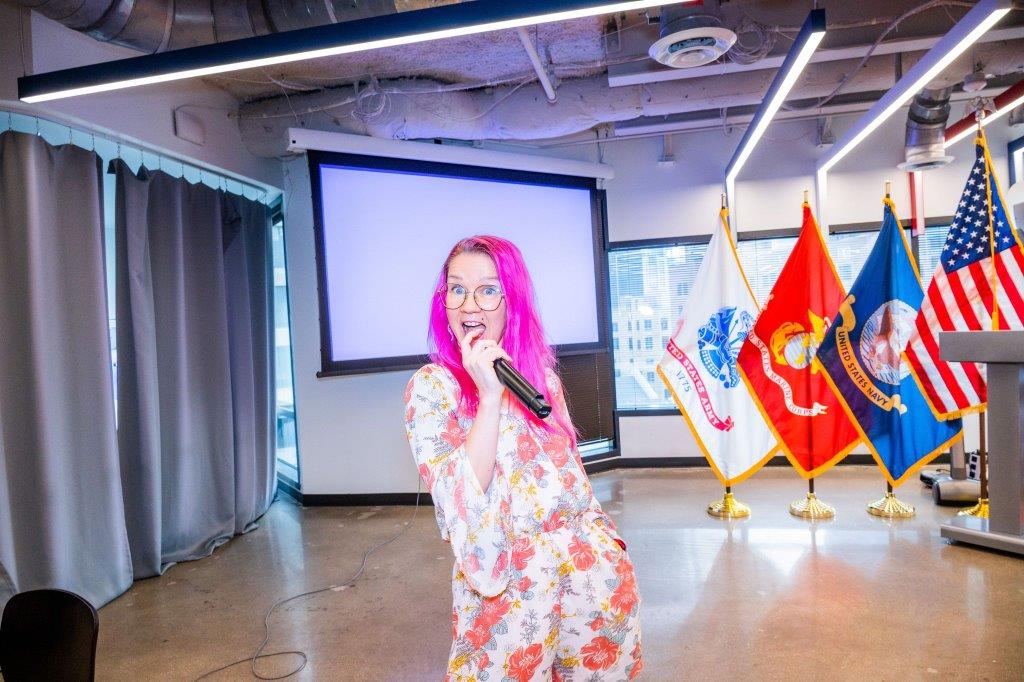
Since 2022, I’ve been running a YouTube channel where I share tips and advice on job searching. So far, I’ve recorded about 150 video interviews. Since launching, I’ve consistently released two videos per week, and since November 2023, I’ve started weekly live streams called “Sunday Kombucha,” where my guests and I discuss job hunting and life in America with humor. Over this period, I’ve met a huge number of talented people both in Austin and across the U.S., as well as beyond.
My channel allows me to reach out to interesting and influential people and ask them questions. Every guest of mine is a treasure trove of insights. In addition to my viewers receiving a wealth of invaluable material for free from these interviews, I, in turn, also grow and learn along with my channel.
So, if you’re interested in job searching in America, you probably won’t find anything more detailed in Russian than my channel. If you want to be featured in one of my videos, feel free to reach out—I’m always looking for great stories.
Among my guests have been people like clinical psychologist Yulia Yuferova, who recently moved to New York, systems architect Valery Shirokov, who relocated to Florida, Sasha Nikolaev from Wargaming, Taalay Jumabayev, a former developer from Google, Olga Bondareva, the founder of ModumUp – B2B Marketing Agency. My channel has also featured talented guests from other cities in the U.S. and well-known companies like Meta, Amazon, Apple, Microsoft, as well as startup founders.
I talk about people who came to the U.S. through various visa types, primarily O1 and EB1 talent visas. But there are also those who crossed the Mexican border and applied for political asylum, as well as people under the U4U (United for Ukraine) program for Ukrainian citizens. So, if you need motivation on how to obtain a visa to the U.S., you can also learn some interesting stories.
Links to my YouTube channel and all social media: https://linktr.ee/prodcastUS
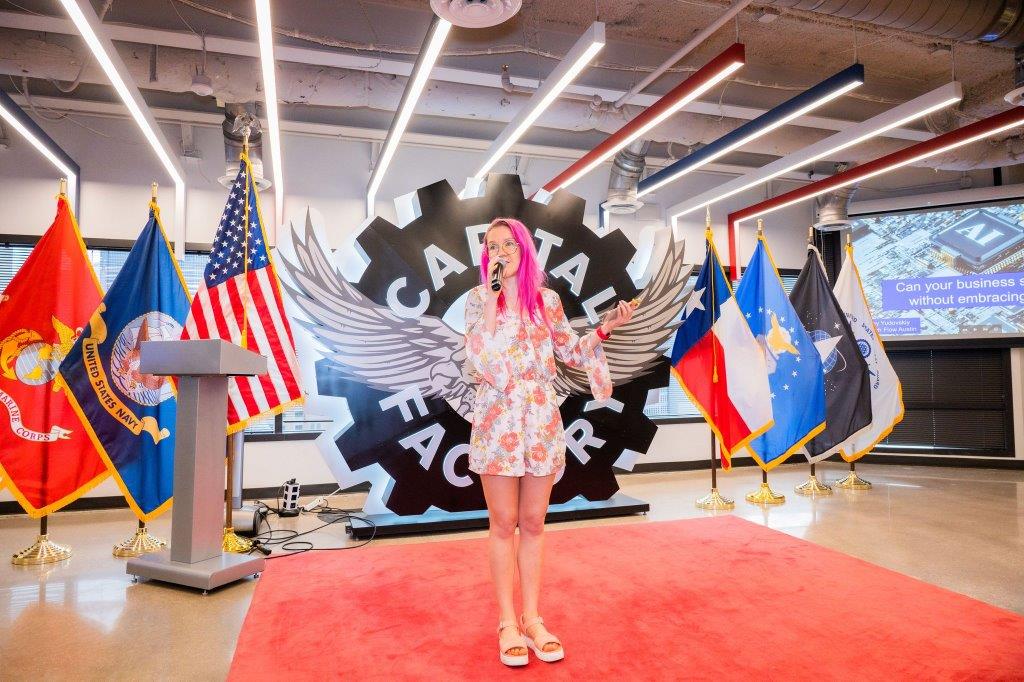
How to Create a Great Resume?
I work a lot with resumes and can highlight the main mistakes I encounter:
● Wrong template. In the U.S., resumes should be simple, black and white, without photos or design embellishments.
● Describing processes instead of achievements. In American culture, results are valued more than the process of work.
● Incorrectly phrasing achievements. You need to use numbers, metrics, and the XYZ formula (for example, “Achieved X by Y% using Z”).
You can find all the resume secrets on my free YouTube channel.
Recently, I released a text guide and an online course on American resumes. It’s a very comprehensive material in Russian, and I’m sure you won’t find anything more detailed on American resumes in Russian anywhere else. The guide (this is the second version) consists of 70 pages, and the course includes 80 topics and 5 hours of video material, including 10 detailed resume reviews with mistakes and examples. It contains everything you need to know to create a good, selling resume: templates, examples, common mistakes, recommendations, formulas for phrasing achievements, how to list job titles, and explain employment gaps. I’ve put a lot of time and soul into this material, and I believe it’s excellent.
Currently, I’m working on a guide for creating a LinkedIn profile. This will also be a very comprehensive material with lots of examples, secrets, and useful tips.
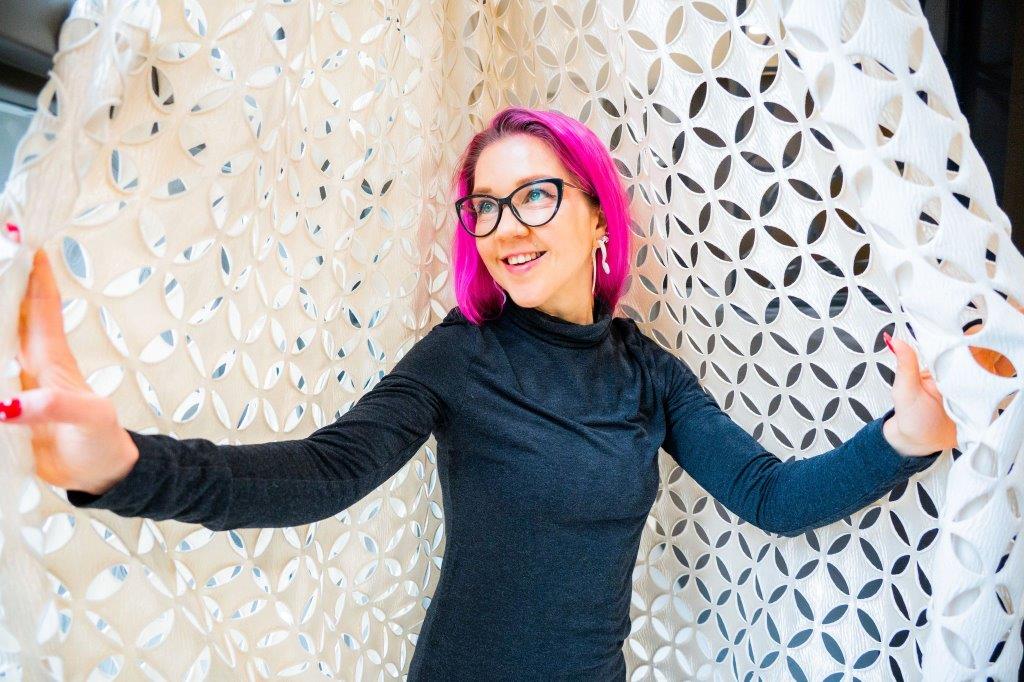
Beyond Practical Aspects, I Also Engage in Coaching on the Edge of Psychology.
I believe that a lot of career struggles actually start way back in childhood.
Take writing a resume, for example. So many people freeze up when they have to talk about their accomplishments. And I think it’s because, growing up, they never really felt like anything they did was good enough to celebrate. Maybe their achievements were brushed off, or they were always pushed to do better instead of recognizing what they’d already done.
These childhood experiences don’t just fade away – they stick with us, shaping how we see ourselves at work and navigate our careers. It’s like carrying around an invisible weight. People struggle to believe in their own abilities, fumble when trying to promote themselves, and clam up when it’s time to talk about their accomplishments.
That’s where I come in. My work goes way beyond just polishing resumes. I help clients dig into these deep-rooted issues. We work together to uncover those old patterns, challenge them, and build genuine confidence. It’s about learning to recognize your true value and finding your voice to express it.
What Does an IT Career Have to Do with the Russian School?
I learned about the organization “Russian Cultural Center” and the Russian School of Austin thanks to my daughter. She will turn 10 years old in October this year. Five years ago, when we moved to Austin, I immediately enrolled her in the Russian school. It was important for me to expand her worldview—to show that there is another language, another culture, other norms, and to preserve her Russian roots. Since then, she has been attending Saturday classes and going to camp.
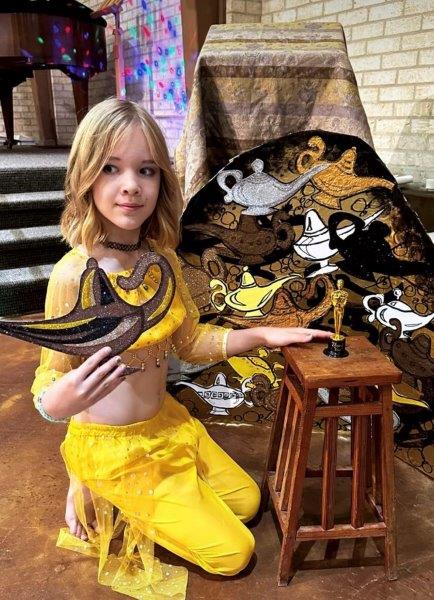
My daughter speaks Russian fluently. She loves the Russian school, especially classes like ceramics and science. She also attends theater and performs in theatrical productions. For two years now, Eva has been taking dance classes with Anna Blagodyrova and has performed in several musicals such as “The Bremen Town Musicians” and “Pinocchio.”
Eva has many friends from the Russian school. She’s a fan of Russian culture and food. She enjoys everything she does on Saturdays from morning till evening.
I am a single mom. I raise my daughter alone, so the Saturday school is very helpful for me to take care of my own business on weekends. For example, recording podcasts or interviews about job hunting, creating webinars, and various materials for my projects.
Eva is a big fan of the mashed potatoes they serve at the Russian school, something I can’t always prepare myself. I also like that the Russian school, especially during camp, takes the kids to various museums. As a single mom, I often don’t have time to take my daughter to museums on weekends, so the opportunity for Eva to visit different parks and museums without me is a huge advantage.
The Russian school has a bus that many kids use, and it’s also a big adventure for them—to go somewhere together. It’s a wonderful school, a wonderful camp.
My child is growing up, and I expect the moment when she’ll tell me, “Mom, I’m grown up now, I’m bored. I want to hang out with my friends on TikTok more than do ceramics.” But until that happens, we plan to attend the Russian school in the upcoming school years.
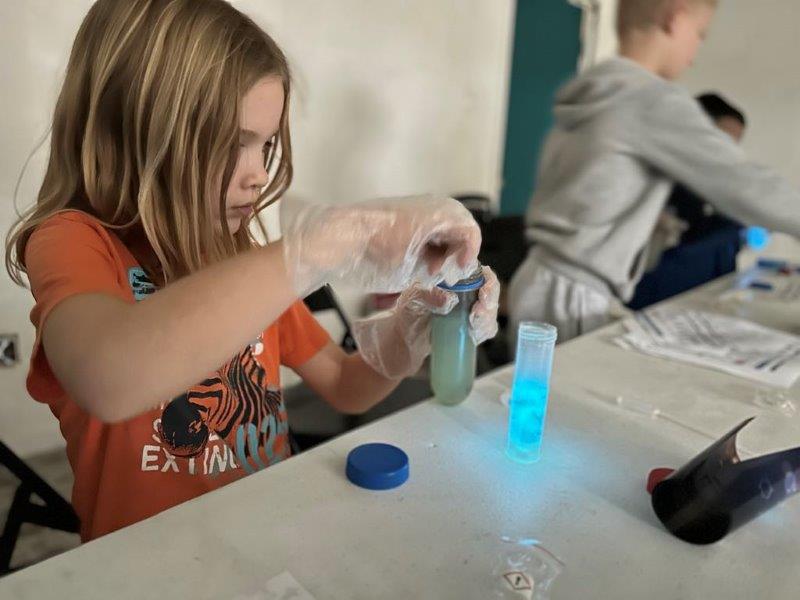
Running in Austin
I never liked running; in school, I was always the last one, and I never even thought that track and field and running were for me. I started running when I moved to the U.S. in 2016. The reason was saving money during the move. Gyms and other activities required additional investments, but running is practically free. You only need to buy good sneakers for $100-200, and you don’t need anything else. But back then, I ran irregularly, not fast, and short distances.
I started running seriously about three years ago, after turning 35 when I decided to completely stop drinking alcohol. I needed somewhere to channel my energy, which I used to spend on parties and bars, so I decided to join the running community in Austin.
My first community was called Morning Jo’s. It’s the largest running group in Austin, which runs from South Congress to the Capitol and the University of Texas and back at 6 AM on Tuesdays. Now there are over 200 people running there. That’s when my running life began.
In the last three years, I’ve run 5 marathons and countless shorter races. I found out that I’m a good runner. I usually rank in the top 1% of runners in my age group (women 30-39 or 35-39 years old). I turned 39 in July. Once, I even took second place in my age group.
In January 2024, I ran the Houston Marathon in 3 hours 21 minutes and qualified for the Boston Marathon. So, in 2025, I plan to run the Boston Marathon, which I’m very excited about.
There are a lot of running groups in Austin. They run every day at different times: early in the morning (at 5, 6, 7 AM) and in the evening (at 6 and 7 PM). So, it’s easy to find a group that fits your schedule. I haven’t seen so many running groups and such large groups anywhere else.
The Morning Jo’s group is great because it’s created for everyone—from fast runners who run at a 7-minute mile pace to those who don’t run at all. All participants are divided into groups based on their running pace. If you’re a beginner or don’t run at all, you can always join the slower-paced groups, like 11 or 12 minutes per mile, or the “walkers”—people who walk.
In addition to regular weekly runs, each group hosts happy hours—a time when you can hang out together outside of running, like going to a bar or café, having breakfast, drinking coffee with a croissant, or in the evening, having a beer with nachos.
Groups are also divided by interests. For example, there’s the Artist Run Club for art lovers. They run on Wednesdays and after running, they go to exhibitions or visit artists. There are also groups for startup founders, beer lovers, women from Latin America, or LGBTQ. You can find a running group not only based on your running preferences but also your life and social interests. Link: https://austinrungroups.com

Contant information:
Anna Naumova
Website: annanaumova.com
YouTube Channel (English): youtube.com/@prodcastUS
YouTube Channel (Russian): youtube.com/@ProdcastRU
Instagram: instagram.com/prodcast.usa
LinkedIn: https://www.linkedin.com/in/naumovaanna/
